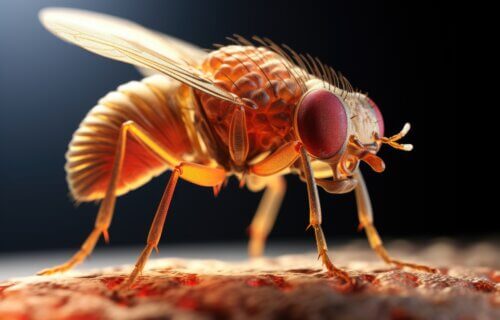MANSFIELD, Conn. — Starting a new diet is never easy, and older adults may think there’s little point at their age. But new research from the University of Connecticut suggests that making dietary changes, even later in life, can significantly improve health and extend lifespan.
It’s important to note that this conclusion is derived from a study on fruit flies. How could that possibly translate to humans? Despite being a very different organism, about 75% of the genes that cause diseases in humans are also found in the fruit fly. This genetic similarity allows researchers to study the effects of these genes and understand how they contribute to various diseases and health conditions in humans.
Perhaps there’s no bigger health concern for humans than obesity, now a growing concern globally. It’s linked to several metabolic diseases, including heart disease and diabetes. Past animal studies have consistently shown that caloric restriction, without malnutrition, can extend lifespan. Human trials have also indicated health benefits from eating less, particularly in obese individuals, but the impact on lifespan has been harder to establish.
The UConn team was led by geneticist Blanka Rogina from the school’s Department of Genetics and Genome Sciences and the Institute for Systems Genomics. They focused on fruit flies fed a diet high in sugar, protein, and calories, mimicking a modern processed diet. These flies exhibited metabolic changes akin to those in obese humans. Remarkably, when these flies were switched to a low-calorie diet late in life, they experienced significant metabolic alterations and lifespan extension.
Fruit flies typically live short lives, with those on a high-calorie diet surviving less than 80 days, compared to up to 120 days for those on a low-calorie diet. The study explored the effects of diet changes on both young and old male flies. Young flies switched from a high-calorie to a low-calorie diet at 20 days old lived as long as those on a low-calorie diet from the start.

Older Flies Show Incredible Improvement After Low-Calorie Diet
However, the real surprise came with older flies. Those raised on a high-calorie diet had more body lipids and a higher energy expenditure in combating oxidative stress. They also had a higher mortality rate compared to those on a low-calorie diet. But when these older, high-calorie diet flies were switched to a low-calorie diet at 50 or even 60 days (an age by which most high-calorie diet flies had died), their metabolisms and lifespans dramatically improved.
“Our studies were performed in flies aged on a high calorie diet, akin to obese individuals, suggesting that late-life diet shift in obese humans might have remarkable beneficial impact on health,” Rogina says in a statement.
The team, including UConn School of Medicine Genetics and Genome Sciences Chair Brent Graveley, also analyzed gene expression in these flies. They found significant differences between high and low-calorie diet flies in genes controlling physiological and metabolic adaptations. “The remarkable finding of this study is that even after living a significant portion of their lives on a high calorie diet, flies can gain the benefits of life span extension by simply switching to a low calorie diet,” says Gravely.

The research team is currently examining data from female fruit flies to identify any sex-related differences in response to diet changes.
This study, published in PNAS, opens a new window of opportunity for addressing obesity and its related health issues in humans, suggesting that it might never be too late to make a change for the better.

When you refer to high calorie and low calorie can you supply the equivalents for a human?